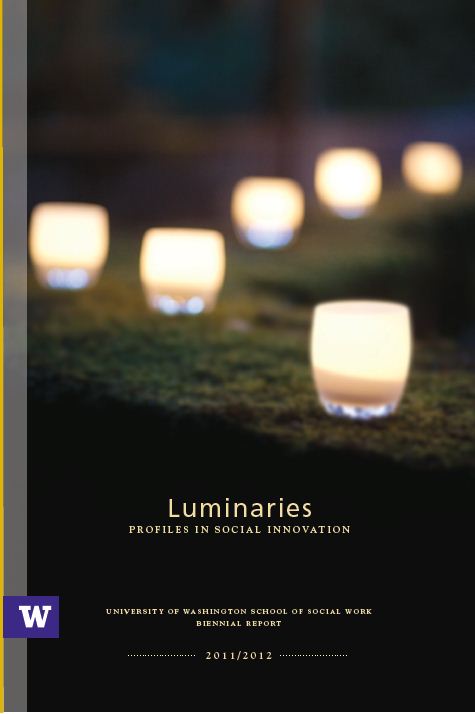
|
From the field: Spotlight on David Salmon in South Sudan
While touring Torit County Prison, a man started speaking to me
in English.... He had a chain around his ankle which is something that
often accompanies condemned prisoners or those the South Sudanese deem
‘lunatics.’ Sometimes the mentally ill are detained under a ‘public
nuisance’ law and More than $100,000 raised at spring scholarship breakfast The 4th Annual School of Social Work Scholarship Breakfast, held
March 20 in the newly renovated HUB on the UW Seattle campus, raised
more than $100,000 for Miguel Ferguson voted one of this year's "Texas 10"
Beth Farmer receives Robert Wood Johnson Foundation leadership award Beth Farmer (MSW '08) is one of 10 recipients of the Robert Wood Johnson Foundation Community Health Leaders Award. Selected from hundreds of applications nationwide, she received $125,000, which will be used in part to fund further study. Farmer was recognized for her pioneering work to develop an effective assessment tool that screens for anxiety and depression among refugees. Called Pathways to Wellness, the tool identifies refugees at risk, connects them to care, builds provider capacity and strengthens systems integration. In the past, refugee resettlements rarely dealt with mental health issues. Now, Farmer’s tool has dramatically altered how refugee health is viewed and treated. Pathways is being used by about 70 percent of the 1,800 refugees coming into King County and in more than 35 other locations nationwide. James DeLong winner of the UW distinguished contributions award James DeLong was recently selected to receive the 2013 UW
Distinguished Contributions to Lifelong Learning Award. The awards
committee cited He attributes his success to the hard work of the faculty and staff who supported him over the decades. “While I was fortunate to have a pivotal role in access for nontraditional students,” he said, “I see this award as a celebration of the School’s collective accomplishments.” DeLong will be honored at an awards ceremony on Thursday, June 13, at 3:30 p.m. in Meany Hall Auditorium, followed by a reception in the lobby. Both the ceremony and reception are open to all. Multi-million-dollar NIDA grant goes to Social Development Research Group Dr. Rick Kosterman and his colleagues at the School-affiliated Social Development Research Group recently received a five-year $2.6 million award from the National Institute on Drug Abuse. Their study will explore mechanisms linking social and built environments to the health of people in their 30s. It follows a longitudinal sample from the Seattle Social Development Project. Indigenous Wellness Research Institute team honored by Centers for Disease Control and Prevention Dr. Bonnie Duran and the School-affiliated IWRI team were recognized by the CDC for their pioneering efforts to reorient conventional models of research toward those that promote community-based participatory research, cultural humility and indigenous ways of knowing. The research conducted by Duran, associate professor, Department of Health Services, and IWRI will help communities design public health treatment and prevention efforts that are more empowering, culture-centered, sustainable and effective. James Herbert Williams honored with 2013 distinguished alumni award
Today, Dr. Williams is the dean of the Graduate School of Social Work at the University of Denver. His research on health promotion and disease prevention, mental health, delinquency and social issues affecting the African-American community has been widely published in leading scholarly journals. He is the current president of the National Association of Deans and Directors of Schools of Social Work and a member of the Commission on Educational Policy for the Council of Social Work Education. This prestigious award honors a School graduate for exceptional service, social innovation or professional leadership. Past awardees include Wendy Lustbader, Norman Johnson, Ken Weinberg, Eric Pettigrew, Leah De Roulet, Perry Wien, Joe Bell and James Kelly. Dean Williams will receive the distinguished alumni award at a
reception preceding the School’s graduation ceremony on June 13 at the
Alaska Airlines Arena in the Hec Edmundson Pavilion on the UW campus. The
reception will be held from 4:30 to 5:30 p.m. in the Pavilion's Founders Club. Please RSVP to attend. Guests attending the
reception are welcome to attend the graduation celebration. For details, please contact Greg Ross or call 206-221-7735. Diana Pearce weighs in on poverty in letter to the NYT editor In a recent letter to the editor of the The New York Times, Diana Pearce, senior lecturer and director of the Center for Women’s Welfare, discussed the importance of better-paying jobs in the war against poverty as well as more support for working parents and equal wages for women and people of color. “When we force people to choose between being successful workers and successful parents, the country loses,” Pearce wrote. “It is equally important to ensure that parents can both care for their children and provide adequately for them.” Her letter and several other opinions on the subject appeared February 9 in the Sunday Dialogue, a regular feature of The New York Times. Biren "Ratnesh" Nagda celebrates new book and teaching recognition award
As higher education institutions become more diverse, campus
demographics are shifting. This change can lead to a more dynamic
learning Nagda was recently selected to receive a Faculty Recognition Award from the Office of Minority Affairs & Diversity for being a vital campus partner who has “engaged staff, taught students and made their campus experience enlightening and successful.” The University has appointed Nagda as a full professor, effective September 2013. UW Class of 2013 includes 290 School of Social Work graduates The School of Social Work will graduate 290 individuals on Thursday, June 13. The ceremony takes place 6–8:30 p.m. at Alaska Airlines Arena, with a reception to follow. Tickets are not necessary, but RSVPs for graduates and guests are requested. More information is available on our graduation Web page. Chizuko Norton leaves a rich legacy Chizuko Norton (BASW ’49, MSW ’51), a dedicated Seattle social worker
for more than 50 years, died March 2. The child of Japanese During her long career, she worked at Children’s Home Society of Washington, Ryther Child Center and United Way of King County, before turning her focus to education. She was hired as a faculty member in the School of Social Work, teaching and overseeing student field placements. In 1984, Norton and two colleagues founded Separation and Loss Services at Virginia Mason Medical Center, where she remained as director until 1993. She continued in private practice for many years after that. |
Updates
What makes the School of Social Work a laboratory for change? Read our biennial report Luminaries: Profiles in Social Innovation. CAREER MENTORSHIP NETWORK The Alumni Career Mentorship Network links seasoned social work professionals with current social work students or recent graduates exploring career options. Take a moment to explore the site and all it has to offer. SHARE YOUR NEWS MAKE A GIFT |

|
|
|
|
THIS MESSAGE WAS SENT BY: UW School of Social Work, Box 354900, 4101 15th Avenue NE, Seattle, WA 98105 © 2017 University of Washington | Contact Us | Privacy Policy This e-mail message was sent to Manage Your Subscriptions or Unsubscribe |

|
|
 There
is reportedly one psychiatrist in all of South Sudan. There are no drug
treatment programs, medicine is scarce, and mental health treatment is
non-existent.
There
is reportedly one psychiatrist in all of South Sudan. There are no drug
treatment programs, medicine is scarce, and mental health treatment is
non-existent. may have not committed any criminal offense at all. There’s just no other facility for them.
may have not committed any criminal offense at all. There’s just no other facility for them.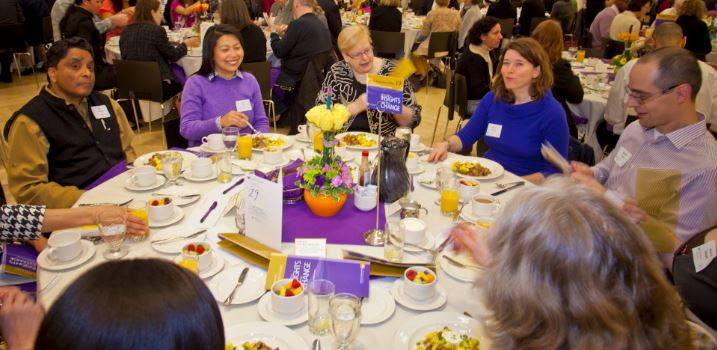 need-based scholarships for future MSW students. New York Times best-selling author and video game designer
need-based scholarships for future MSW students. New York Times best-selling author and video game designer  Miguel Ferguson (PhD, ’99), associate professor of social work at the
University of Texas at Austin, was nominated by UT alumni as one of the
university’s top 10 teachers. Ferguson developed a passion for social justice when he attended
inner-city schools. He remembers asking himself: "Why do we have such
inequality in the midst of plenty in this country?" and has
devoted his career to exploring that question. Ferguson teaches classes
on poverty, social policy, welfare reform and social
justice. The award was announced in the March-April 2013 issue of The
Miguel Ferguson (PhD, ’99), associate professor of social work at the
University of Texas at Austin, was nominated by UT alumni as one of the
university’s top 10 teachers. Ferguson developed a passion for social justice when he attended
inner-city schools. He remembers asking himself: "Why do we have such
inequality in the midst of plenty in this country?" and has
devoted his career to exploring that question. Ferguson teaches classes
on poverty, social policy, welfare reform and social
justice. The award was announced in the March-April 2013 issue of The 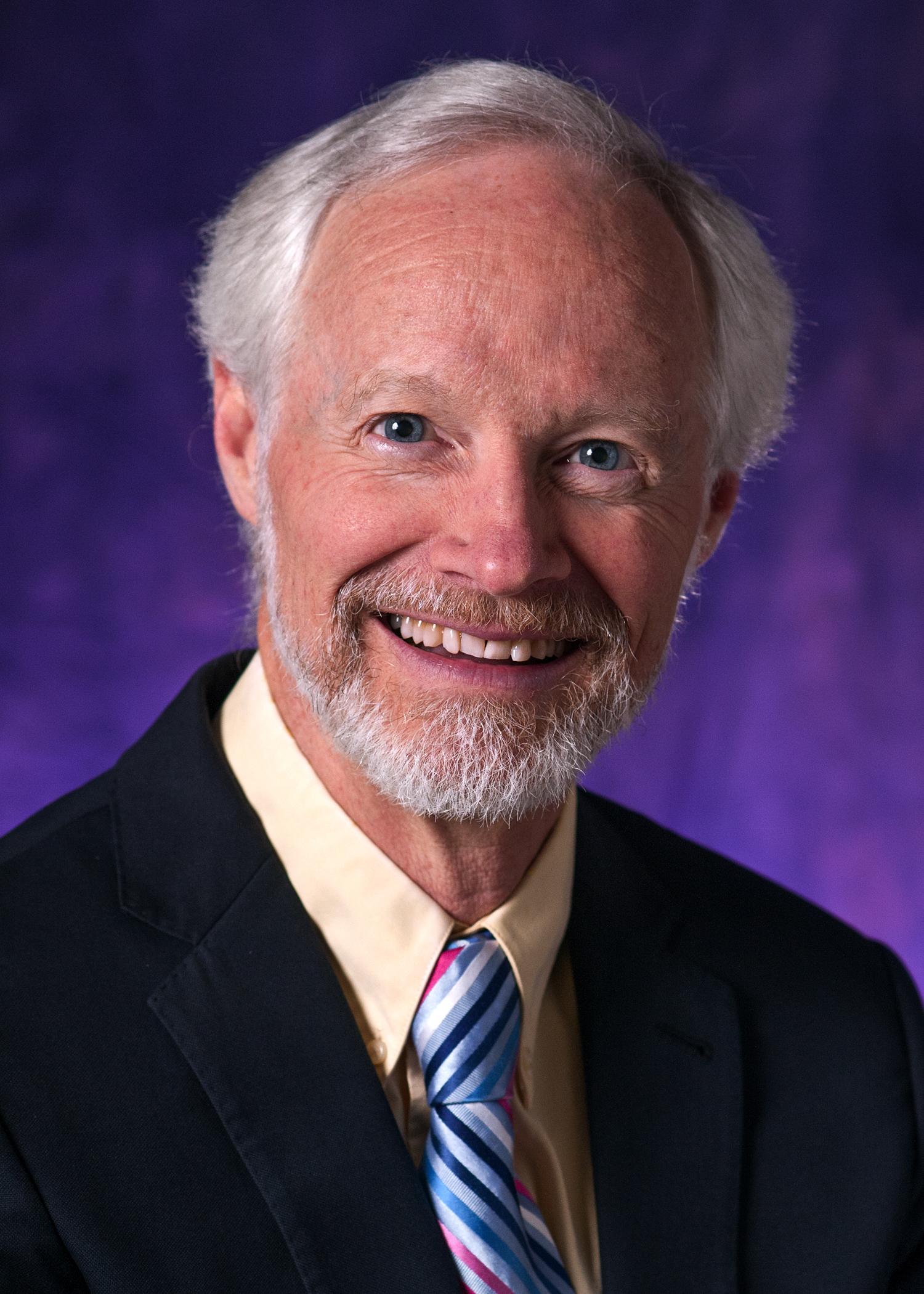 his
many years of leadership at the School of Social Work, where he
supported educational access for working adults and other nontraditional
students as part of the Extended Degree program. Under DeLong's
direction, the program's reach and scope were greatly expanded to
include diverse groups of experienced and engaged social workers
practicing in urban and rural settings.
his
many years of leadership at the School of Social Work, where he
supported educational access for working adults and other nontraditional
students as part of the Extended Degree program. Under DeLong's
direction, the program's reach and scope were greatly expanded to
include diverse groups of experienced and engaged social workers
practicing in urban and rural settings.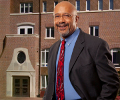 James
Herbert Williams (PhD '94) is the 2013 School of Social Work
Distinguished Alumni Award winner. Dr. Williams grew up in rural North
Carolina, one of seven
children of a sharecropper father and mother who prized education. His
parents died when he was 10, and he was subsequently raised by his
grandmother. "When you don't grow up in privilege," says
Williams, "you never assume that you've arrived."
James
Herbert Williams (PhD '94) is the 2013 School of Social Work
Distinguished Alumni Award winner. Dr. Williams grew up in rural North
Carolina, one of seven
children of a sharecropper father and mother who prized education. His
parents died when he was 10, and he was subsequently raised by his
grandmother. "When you don't grow up in privilege," says
Williams, "you never assume that you've arrived."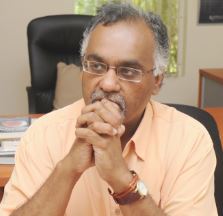 environment
or it can raise tensions and reinforce stereotypes. Intergroup dialogue
can bring together students from different groups to share perspectives
and learn from each other. In Dialogue Across Difference: Practice, Theory, and Research on Intergroup Dialogue (
environment
or it can raise tensions and reinforce stereotypes. Intergroup dialogue
can bring together students from different groups to share perspectives
and learn from each other. In Dialogue Across Difference: Practice, Theory, and Research on Intergroup Dialogue ( immigrants,
during World War II “Chiz” and her family were sent to an internment
camp in California, where she spent her teenage years. After the
war, she earned degrees in social work from the University and married
Thomas Norton, who became a professor in the University’s Department of
Urban Planning.
immigrants,
during World War II “Chiz” and her family were sent to an internment
camp in California, where she spent her teenage years. After the
war, she earned degrees in social work from the University and married
Thomas Norton, who became a professor in the University’s Department of
Urban Planning. 